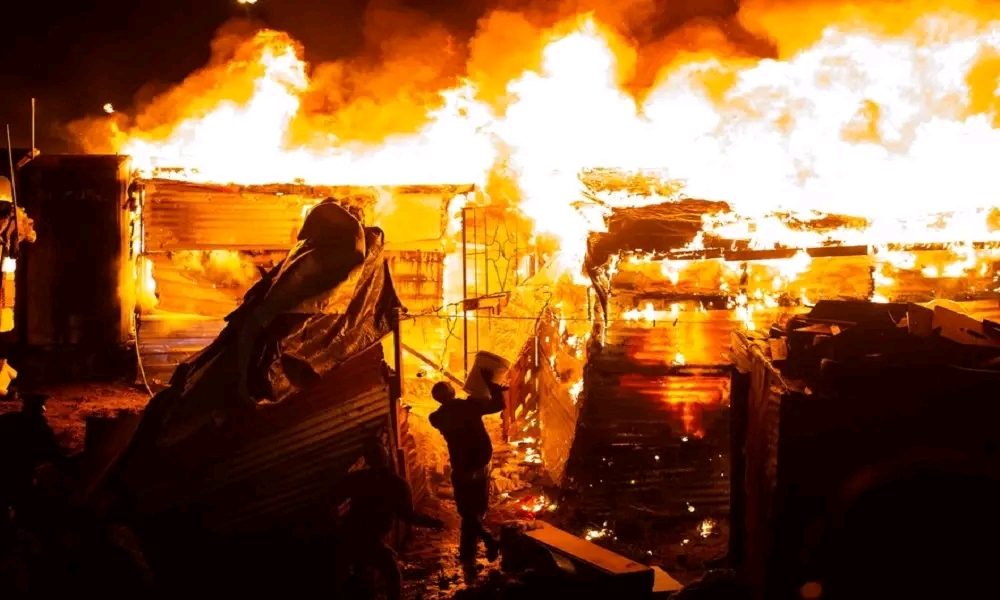
The Gauteng Premier, Panyaza Lesufi, has expressed deep sorrow following the tragic deaths of three sisters who lost their lives in a shack fire at the Phumasilwe Informal Settlement in Tembisa. The incident, which occurred over the weekend, has once again drawn attention to the dangerous living conditions faced by many families in informal settlements across South Africa.

The victims, identified as Relebohile, Lethabo, and Kgothatso Sekaoke, were aged between seven and fifteen. Their lives were cut short when their shack was engulfed in flames, leaving the community devastated. During their memorial service, held at Sedibeng Primary School, mourners were reminded of the extreme poverty and harsh conditions that the girls endured.
Premier Lesufi, who attended the service, offered his condolences to the grieving family and stressed the need for urgent interventions to prevent similar tragedies. “When the teachers were going through their stories, it kept ringing in my mind—how many other families are living under the same circumstances?” he said. “We cannot simply come here to say farewell; we must take steps to strengthen this family and the school community as well.”

Lesufi emphasized that incidents of this nature must not be treated as isolated cases. He committed to working with the provincial Department of Education to assess and address the living conditions of learners in Tembisa and surrounding areas. “We cannot expose our children to this level of suffering. Children should be preparing for graduations, not funerals,” he said.
Teachers at Sedibeng Primary School painted a picture of the struggles the Sekaoke sisters faced daily. Educator Klaas Mashiane described them as bright and promising learners whose attendance at school was often disrupted by their circumstances at home. “They were not coming to school as regularly as they should. One day, I had to fetch them from home myself. What I saw was heartbreaking—row upon row of shacks, overcrowded and unsafe. Out of concern, I even bought food for the family,” Mashiane recalled.
The tragedy has also raised questions of parental responsibility. Police confirmed that the girls’ mother has been arrested on charges of child neglect and remains in custody. Authorities say the investigation will determine the extent of her responsibility in the events leading up to the fire.
This heartbreaking incident comes just months after another shack fire in May claimed the lives of six family members in the Marikana Informal Settlement in Kwathema, east of Johannesburg. These recurring tragedies highlight the persistent risks associated with informal housing, where overcrowding, faulty wiring, and limited access to emergency services leave families vulnerable.
Community members and leaders alike are calling for lasting solutions. Beyond immediate relief efforts, there are growing demands for accelerated housing development, improved safety measures, and stronger social support systems to protect children in vulnerable communities.
For Lesufi, the deaths of Relebohile, Lethabo, and Kgothatso serve as a painful reminder that urgent government action is needed. “We must ensure that no other child endures such conditions. Their passing should be a turning point,” he said.




